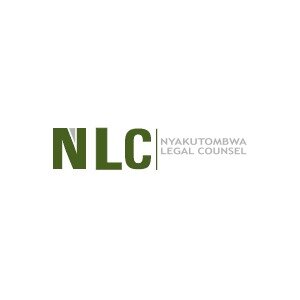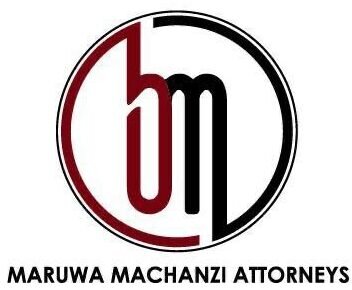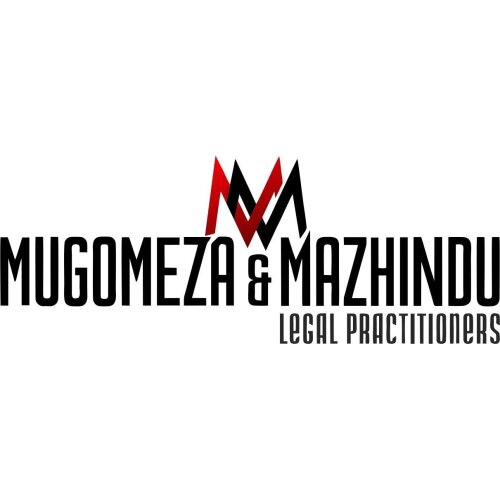Best Investment Lawyers in Harare
Share your needs with us, get contacted by law firms.
Free. Takes 2 min.
List of the best lawyers in Harare, Zimbabwe
About Investment Law in Harare, Zimbabwe
Investment law in Harare, Zimbabwe, primarily aims to protect both local and international investors while promoting economic development. The city, as the capital of Zimbabwe, serves as a focal point for investment activities in the country. The Zimbabwe Investment and Development Agency (ZIDA) plays a crucial role in facilitating investment and offering incentives to attract investors. Key sectors for investment include mining, agriculture, tourism, and manufacturing. However, navigating the regulatory landscape can be challenging, which underscores the importance of understanding local investment laws and regulations.
Why You May Need a Lawyer
Legal assistance is invaluable in numerous scenarios related to investment in Harare:
- Setting Up a Business: You need a lawyer to help navigate incorporation processes and comply with local regulations.
- Drafting and Reviewing Contracts: Legal professionals ensure that agreements comply with local laws and protect your interests.
- Understanding Regulatory Compliance: A lawyer can guide you through compliance with sector-specific regulations and tax obligations.
- Dispute Resolution: In the event of disputes, such as partnership disagreements or client claims, legal aid is crucial for resolution.
- Intellectual Property Rights: Lawyers help protect your intellectual property and advise on any infringement issues.
Local Laws Overview
Investment in Harare is governed by several key legal frameworks:
- Zimbabwe Investment and Development Agency Act: This law governs all matters related to investment, including registration and operation of foreign and local investors.
- Company Act: Provides regulations regarding the formation, management, and dissolution of companies in Harare.
- Exchange Control Regulations: Controls the flow of foreign currency and investments in Zimbabwe.
- Indigenization and Economic Empowerment Act: Initially aimed at ensuring local participation, recent amendments have relaxed most requirements to encourage foreign investment.
- Tax Law: Understanding local tax obligations is crucial for compliance and financial planning for investors.
Frequently Asked Questions
What is the process for foreign investors to set up a business in Harare?
Foreign investors must register with ZIDA and comply with the Companies Act for company formation. Additional licenses may be required depending on the sector.
Are there any incentives for investing in Zimbabwe?
Yes, the government offers various incentives, including tax breaks and rebates, especially in special economic zones and priority sectors.
How can I protect my investment from political risks?
Considerations include risk insurance, establishing a local subsidiary, and seeking bilateral investment treaties that may offer additional protection.
Can foreigners own land in Harare?
Foreign ownership of land is restricted, and leases or partnerships can often be used instead to comply with regulations.
What is the role of the Reserve Bank of Zimbabwe in investment?
The Reserve Bank oversees foreign exchange and capital movement, impacting how investments are managed financially.
How are investments taxed in Zimbabwe?
Investments are subject to corporate tax, capital gains tax, and other applicable taxes. Tax incentives may apply for certain sectors.
Is arbitration a viable option for resolving business disputes?
Yes, arbitration is commonly used, and the Arbitration Act governs such proceedings locally.
What are Bilateral Investment Treaties (BITs)?
BITs are agreements between Zimbabwe and other countries to protect investments made by nationals in each other’s territories.
How do foreign currency controls impact investment?
Controls affect the repatriation of funds and transactions in foreign currencies, requiring compliance with exchange control regulations.
What sectors are most attractive for investment in Harare?
Key sectors include mining, agriculture, tourism, and manufacturing, each offering unique opportunities and challenges.
Additional Resources
Here are some resources and organizations that can provide further assistance:
- Zimbabwe Investment and Development Agency (ZIDA): Facilitates investment processes and provides information on investment opportunities and incentives.
- Zimbabwe Revenue Authority (ZIMRA): Offers details on tax regulations and compliance for investors.
- Chamber of Mines of Zimbabwe: Provides insights on investment opportunities in the mining sector.
- Harare Chamber of Commerce: A local body that supports business operations and networking.
- Zimbabwe's Ministry of Finance and Economic Development: Offers updates on economic policies and initiatives relevant to investors.
Next Steps
If you require legal assistance for investment in Harare, consider the following steps:
- Consult Legal Experts: Seek advice from lawyers specializing in investment law to understand your legal obligations and opportunities thoroughly.
- Engage with Investment Agencies: Contact ZIDA to guide you through the required procedures and connect you with sector-specific advisors.
- Research and Network: Gather information from available resources, and attend local business events and forums to network with industry peers.
- Prepare Documentation: Ensure all your documents are in order, including business plans, registration documents, and any necessary licenses.
- Stay Informed: Keep up to date with changes in local investment laws and economic policies that may affect your business operations.
Lawzana helps you find the best lawyers and law firms in Harare through a curated and pre-screened list of qualified legal professionals. Our platform offers rankings and detailed profiles of attorneys and law firms, allowing you to compare based on practice areas, including Investment, experience, and client feedback.
Each profile includes a description of the firm's areas of practice, client reviews, team members and partners, year of establishment, spoken languages, office locations, contact information, social media presence, and any published articles or resources. Most firms on our platform speak English and are experienced in both local and international legal matters.
Get a quote from top-rated law firms in Harare, Zimbabwe — quickly, securely, and without unnecessary hassle.
Disclaimer:
The information provided on this page is for general informational purposes only and does not constitute legal advice. While we strive to ensure the accuracy and relevance of the content, legal information may change over time, and interpretations of the law can vary. You should always consult with a qualified legal professional for advice specific to your situation.
We disclaim all liability for actions taken or not taken based on the content of this page. If you believe any information is incorrect or outdated, please contact us, and we will review and update it where appropriate.

















